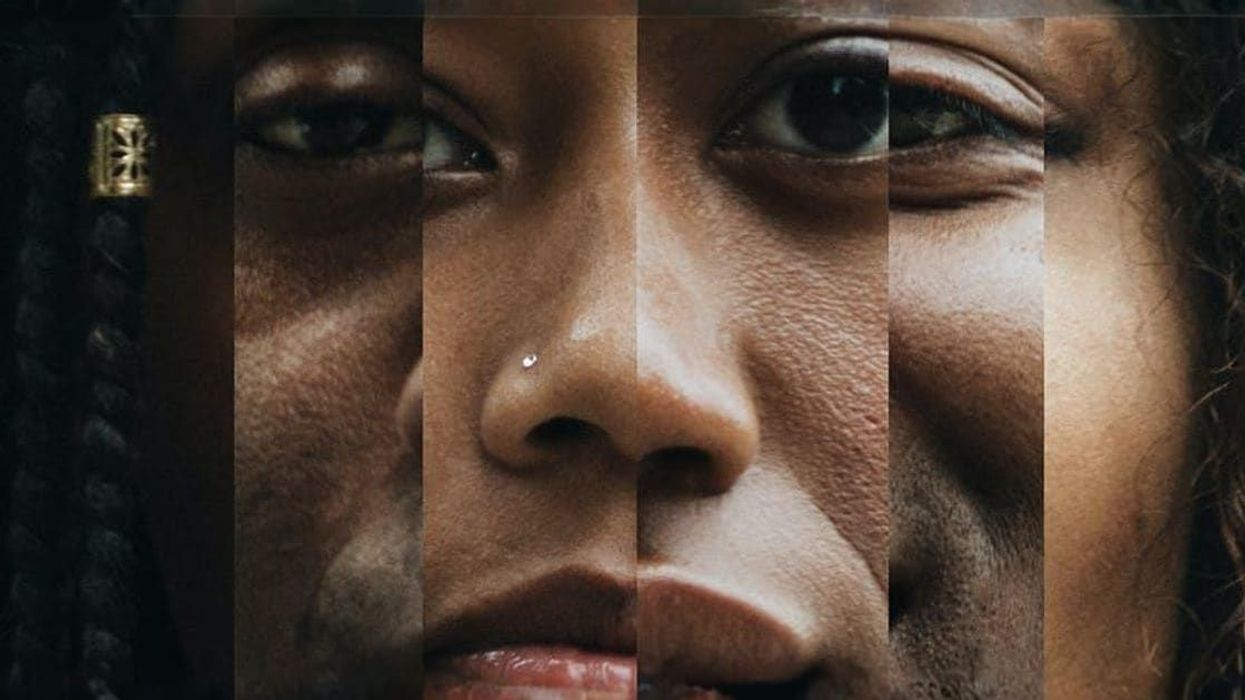There are 15 girls who study at Kranti, an educational NGO in Mumbai, all of them between the ages of 12 and 20. Like typical teenagers, they adore music and dance, complain about their studies, and can’t wait to whisper about their crushes. If you didn’t know better, you’d never guess these chatty teens are the daughters of sex workers in Kamathipura, Mumbai’s largest red-light district.
But spend a little time with them and their mentor, Los Angeles-born Indian-American Robin Chaurasiya, and you’ll uncover a few details about who they were in their “past lives,” when they faced repeated verbal and sexual abuse. Chaurasiya founded Kranti—which is the Hindi word for “revolution”—in the winter of 2010 to empower underserved young girls through education. She has always had big dreams for these girls, certain that if they were given the same opportunities and educational tools as their more privileged counterparts, they would grow up to become leaders.
According to Chaurasiya, her instincts have so far been spot on: These girls don’t do well despite their background, but because of it. “Surviving sexual abuse by multiple men, discrimination at every level, and the ill-treatment of their mothers by their customers requires exceptional courage, resilience, and the optimism that things will get better someday. The girls developed these qualities as part of their coping mechanism,” explains Chaurasiya. “Coupled with their exemplary compassion for the marginalized, these are the very qualities they can later use to work as agents of social change.”
Kranti is a safe home for the girls. It’s where they live, learn, and have the freedom to pursue their passions. “Like everyone, I started out with the belief that a good formal education is the solution to everything, and finding a good school for the girls became my top priority,” says Chaurasiya. But with the way Indian society degraded the girls for being sex workers’ daughters, attending traditional schools turned out to be a traumatic experience for many of them.
“At home, we would work on raising their self-esteem and confidence, then their teachers and peers at school would strip them of it,” she adds. So Chaurasiya decided that the target goal of her NGO would not be to bestow the girls with college degrees or vocational certifications. Rather, Kranti’s ultimate purpose would be to foster a sense of confidence in the girls, while offering them the co-curricular tools they’d need to one day become motivated leaders. In order to fully honor the girls’ tender emotional states and their varying levels of prior education—some have never attended school, and most dropped out when very young—Kranti must exist outside of the formal school system. But, says Chaurasiya, the girls are encouraged to pursue formal schooling beyond Kranti once they feel they’re ready (and if they so choose).
Before the girls are able to engage in any kind of education, they must be emotionally and mentally prepared. Their first few weeks and months at Kranti can be quite trying, as the girls are still recovering from mental and emotional duress that can manifest itself in suprising ways. Some experience days-long crying spells; others are merely aloof; a few try to distract themselves from their pain by cutting or burning themselves. “How can they ever study in such conditions?” asks Chaurasiya. So the first thing that occurs at Kranti is psychotherapy—it’s a mandate as long the girls are involved with the NGO.
Once therapy starts, Chaurasiya works on changing the girls’ mindsets about their mothers. “Most of them come with a feeling of resentment about their moms’ profession,” she says. And why wouldn’t they? They’ve been told repeatedly by good-intentioned well-wishers to keep their personal histories under wraps to avoid ridicule. Says Chaurasiya: “They are shocked when we tell them to respect their moms.” Though it’s a big change, after awhile, the girls start feeling relieved that they don’t have to be ashamed of anything anymore—not even where they came from—which means they can talk openly about their background, allowing them to heal. Chaurasiya encourages the girls to ask their moms questions about how they first ended up getting into sex work, which often turns into stories about how they were trafficked. “We realized that most moms never spoke to their daughters about it due to their own shame and awkwardness.” So Kranti organizes activities to help break the ice and facilitate such conversations.
As soon as a child is ready, schooling begins. At “Kranti School,” girls start their five-hour school days with meditation, followed by journal writing. “To develop gratitude,” Chaurasiya says the girls must write a thank-you note to one person every day. Questions like, “What would you like to deposit in a bank besides money?” in their creative thinking class stimulate out-of-the-box thinking. And games like Sudoku in math class sharpen their logic and reasoning. The reading class, done in English, showcases the stories of empowered women from around the world, followed by lively discussions.
To improve their writing skills (and their empathy), the girls retell the stories they’ve read from the point of view of a different character. And each day, a different song is played in class—not just because music is fun for a group of opinionated teen girls, but so they can critically analyze its contents. “We’ve examined subjects like politics, power, relationships, health, and social justice through songs,” says Chaurasiya. This is followed by a video (TED talks, travel shows, and National Geographic videos are favorites), “to teach them things that are hard to put into a curriculum.” The school day winds up with some slideshows from news channels to give the girls a daily roundup of current events—which, without television or access to newspapers or the internet, most of them weren’t able to access before Kranti.
The most important subject at Kranti is social justice, integrated seamlessly into the daily program. Difficult topics like discrimination, racism, sexism, and gender inequality are regularly discussed—and the girls are tasked with coming up with possible solutions to these challenging issues. Beyond this, the girls must select one physical and one creative activity to pursue on the weekends. There’s a mix of kung fu, kickboxing, photography, dance, painting, and music to choose from. “How else will they discover their talents?” Chaurasiya asks. She takes them on trips around the country at least twice a year, and has sent a few on short courses abroad, because “to change the world, they need to know it well first.”
Theater is woven into the syllabus “to develop creative thinking and public speaking skills.” The girls have written and performed plays in India and are currently touring the United States with one of their original creations, based on their lived experiences, to generate awareness about trafficking and sex workers’ lives in India. As they advance through the program, some of the girls at Kranti impart sex education to rescued teenagers at other NGOs, and a few have given motivational talks at cafes, corporations, and independent TEDx events. One is pursuing drumming at Levine Music, Washington, D.C.; in 2013, another became the very first student born in an Indian red light district to attend Bard College in New York.
The girls are getting there. Though their lives were once full of shame, the girls are growing into confident young adults, proving that they’re not incapable, incompetent, or a burden on society. Says Chaurasiya, “I’m glad they are busting the common [Indian] myth that sex workers’ daughters also end up in brothels.”














